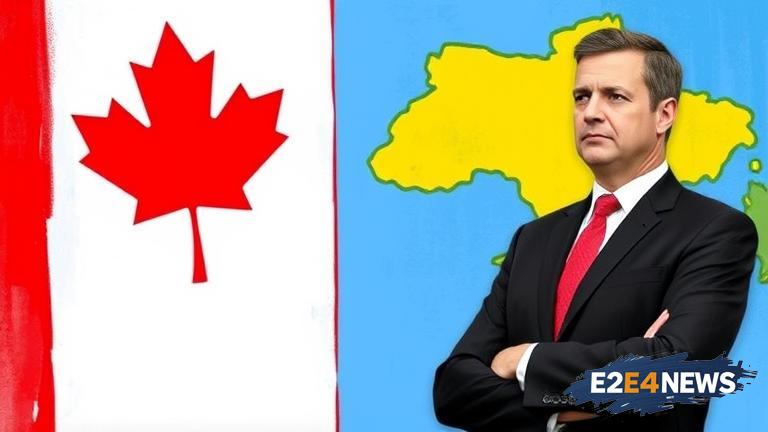The ongoing conflict in Ukraine has been a topic of discussion globally, with many countries weighing in on their stance. Recently, former Bank of Canada governor Mark Carney made comments regarding the possibility of sending Canadian troops to Ukraine, which have been met with criticism for being unclear and overly cautious. Carney’s remarks have sparked a national debate on Canada’s role in the conflict, with many calling for a more definitive stance. The situation in Ukraine is complex, with the country facing ongoing aggression from neighboring Russia. The international community has been working to provide support to Ukraine, with many countries imposing sanctions on Russia and providing financial and military aid to Ukraine. Canada has been a key player in these efforts, with the country providing significant financial and military support to Ukraine. However, the question of whether Canada should send troops to Ukraine remains a contentious issue. Some argue that sending troops would be a necessary step to support Ukraine’s defense, while others believe that it would be a reckless move that could escalate the conflict. Carney’s comments have been seen as an attempt to navigate this complex issue, but his cautious approach has been criticized for being unclear and ineffective. The Canadian government has been facing pressure to take a more definitive stance on the issue, with many calling for a clear commitment to supporting Ukraine’s defense. The opposition has been critical of the government’s handling of the situation, arguing that they have been too slow to act and have failed to provide adequate support to Ukraine. The debate over Canada’s role in Ukraine is not just a political issue, but also a moral one. Many Canadians believe that the country has a responsibility to support Ukraine’s defense and to stand up against Russian aggression. Others argue that Canada should prioritize its own national interests and avoid getting involved in a conflict that could have significant consequences. The situation in Ukraine is likely to continue to be a major topic of discussion in Canada, with the country’s stance on the issue being closely watched by the international community. As the conflict continues to unfold, Canada will be faced with difficult decisions about how to support Ukraine’s defense and how to navigate the complex geopolitical landscape. The country’s approach will have significant implications not just for Ukraine, but also for Canada’s relationships with other countries and its position on the global stage. In recent years, Canada has been working to strengthen its relationships with other countries and to establish itself as a key player in international affairs. The country’s stance on Ukraine will be an important test of its commitment to these goals. The Canadian government will need to carefully consider its approach to the situation, taking into account the complex geopolitical dynamics at play and the potential consequences of its actions. The debate over Canada’s role in Ukraine is likely to continue, with many Canadians calling for a more definitive stance and clearer commitment to supporting Ukraine’s defense. As the situation continues to unfold, Canada will be faced with difficult decisions about how to navigate the complex landscape and to support Ukraine’s defense. The country’s approach will have significant implications for its relationships with other countries and its position on the global stage. The international community will be closely watching Canada’s stance on the issue, and the country’s actions will have a significant impact on the outcome of the conflict. In conclusion, the situation in Ukraine is complex and multifaceted, and Canada’s stance on the issue is a critical aspect of the country’s foreign policy. The debate over Canada’s role in Ukraine is likely to continue, with many Canadians calling for a more definitive stance and clearer commitment to supporting Ukraine’s defense.
